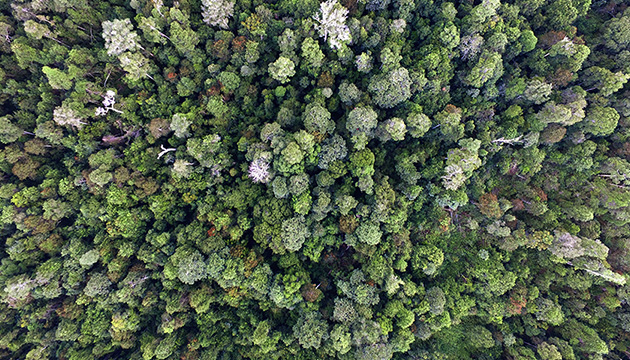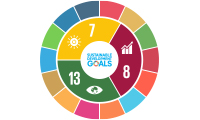Nature-based solutions
Nature will play an important role in the transition to a lower-carbon world. Using nature to capture carbon from the atmosphere is an immediate opportunity to help bridge the gap until other low-carbon solutions are deployed at scale, or to compensate for emissions which cannot be avoided.
Nature-based solutions are expected to be one of Shell's tools to reduce the Net Carbon Footprint of our energy products by around half by the middle of the century.

We will be working increasingly with nature, such as forests, to create sinks for emissions that are hard to avoid.
Nature-based projects typically involve the protection or redevelopment of natural ecosystems such as forests and wetlands, allowing those ecosystems to capture and store more carbon on our behalf. These projects, which also support local communities and conserve biodiversity, generate carbon-emission rights – each right representing one tonne of carbon dioxide not emitted – that then can be bought by energy consumers around the world. We offer carbon offsetting to our business customers in some countries including Belgium, France, Germany, Luxembourg, the Netherlands and Hong Kong.
Most nature-based projects we work with are certified by the Verified Carbon Standard, currently the largest voluntary greenhouse gas certification programme, and the Climate, Community & Biodiversity Standard, which verifies that projects not only address climate change, but also support local communities and conserve biodiversity. One project we are involved with is the Cordillera Azul National Park project in Peru, which is supported and financed by the natural capital investment fund, the Althelia Climate Fund, and protects 1.5 million hectares of threatened forest.
Over the last decade, we have worked with The Nature Conservancy to find new ways to address global and local environmental challenges. This includes using the organisation’s research on nature-based solutions to help us develop business strategies that reduce the Net Carbon Footprint of our products (see Environmental partners).
Shell and emissions trading
Our environmental product trading business, one of the largest in the world, has been operating in compliance and voluntary emissions markets since 2003. The team is active in key emissions markets globally and has four main hubs in London, Singapore, Shanghai and San Diego.
We completed the first trade on the European Union Emissions Trading Scheme (EU ETS) in 2003 and have been an active participant in the European CO2 market for the past 16 years. Today, Shell is active in the EU ETS, Western Climate Initiative, Regional Greenhouse Gas Initiative, Chinese pilot markets in Shanghai, Beijing and Guangdong, South Korean ETS, New Zealand ETS and the Australian Safeguard Mechanism.
We also work with a carefully selected group of environmental project developers around the world to offer our customers voluntary carbon credits. We ensure that our selected projects comply with high-quality accreditation standards. In this way, we are building a global portfolio of nature-based projects through which we can help our customers to offset carbon emitted from the fuels they use.
Shell’s global environmental products trading business is also working with businesses across Shell to identify opportunities to support the reduction of our own Net Carbon Footprint.
 Our people
Our people
 Sustainable development goals
Sustainable development goals
 About our data
About our data
 Electricity
Electricity